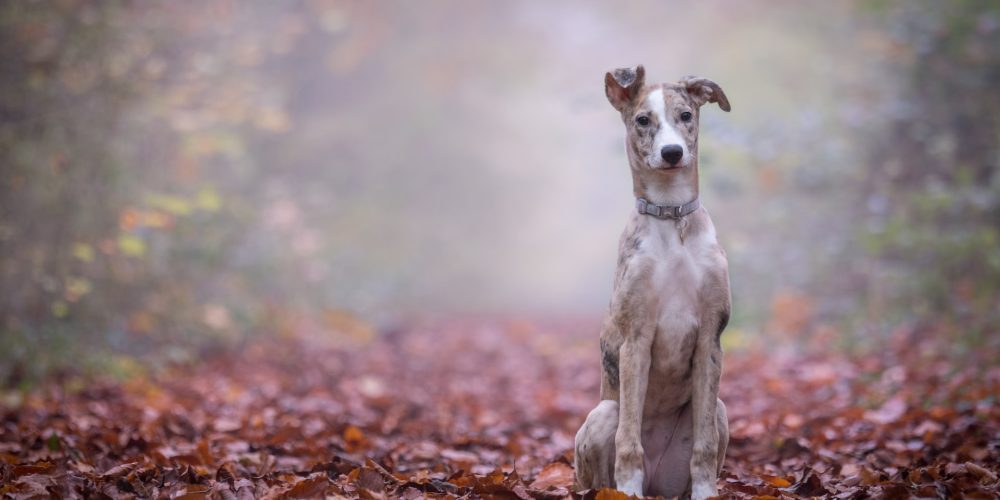Now that autumn has well and truly arrived in the UK, read our handy guide to the most common dangers affecting pets at this time of the year. Find out what to do if your pet is at risk and how to prevent them from becoming ill.
Autumn hazards for pets: Conkers
Conkers are poisonous to dogs and cats. Conkers fall from the Horse Chestnut tree during autumn in the UK. They pose several dangers to our pets.
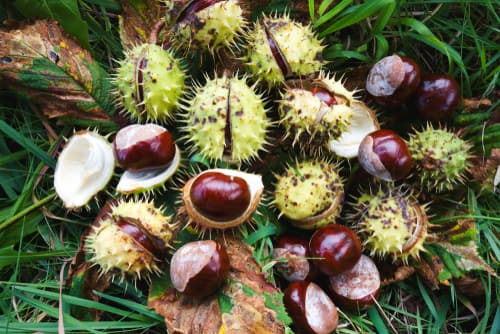
- If your dog or cat eats a conker, there’s a risk of it causing choking or a blockage in the intestine.
- Conkers contain a substance called aesculin that is poisonous to dogs and cats. This toxin is present in all parts of the tree, including the leaves and bark.
- Symptoms of conker poisoning can be severe, especially if more than 1 or 2 have been eaten, although it’s impossible to say how many will make your dog or cat ill.
- Signs include vomiting, diarrhoea, restlessness, seizures, and collapse. The symptoms can develop anytime from 1 hour to 2 days after ingestion.
Autumn hazards for pets: Acorns
Acorns are the fruits of the oak tree and fall to the ground during autumn in the UK. They pose several risks to dogs and cats.
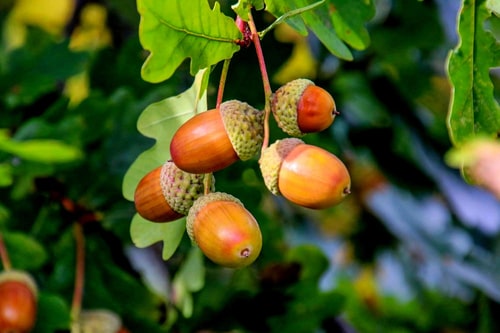
- If your dog or cat eats an acorn, there is a risk of it causing choking or a blockage in the intestine.
- Acorns contain toxins called tannins that are poisonous to dogs and cats. The toxin is present in all parts of the tree, including the leaves and bark.
- Symptoms of acorn poisoning include drooling, vomiting, diarrhoea, tummy pain, and lethargy. The symptoms usually develop within a few hours of ingestion, but may not be seen for a day or more.
- Unfortunately, every acorn contains different amounts of the toxin, so it’s impossible to say how many will make your dog or cat ill. The signs of acorn poisoning may be mild if only a few are eaten. But they are usually much more serious if many are eaten all at once or if small amounts are eaten over a period of time.
Mushrooms and toadstools that are poisonous to dogs and cats
Many different types of mushrooms and toadstools exist in the wild in the UK. They are most commonly found during the autumn, between September and November.
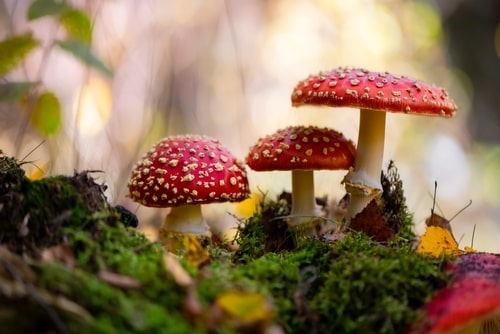
- The toxicity level varies between the different species of mushrooms.
- Symptoms of mushroom poisoning in dogs and cats include vomiting, diarrhoea, drooling, tummy pain, loss of balance, seizures, and collapse.
- The signs can appear immediately after your dog or cat eats a mushroom or may be delayed for up to a day or more.
Other plants and leaves
- There are many different indoor and outdoor plants that can cause illness in dogs and cats. In autumn, seasonal risks include hydrangeas, autumn crocus, and even wet leaves, any of which can be a threat to our pets.
Autumn hazards to pets: Halloween dangers
Chocolate, sweets, and even Halloween decorations can be dangerous to dogs and cats.
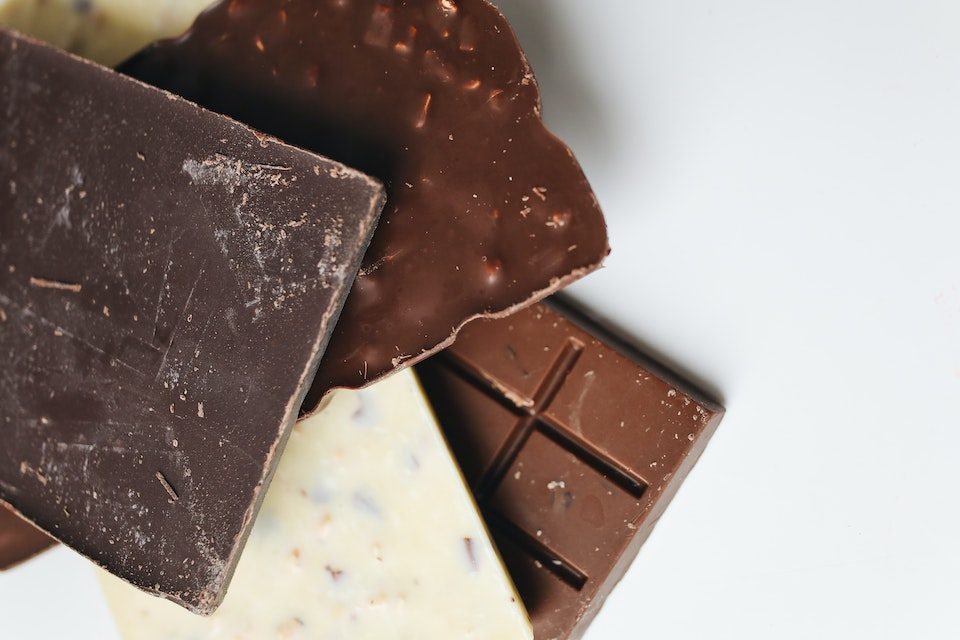
- Chocolate is poisonous to dogs and cats. Dark chocolate and foods containing high levels of cocoa powder are the most dangerous. The smaller your pet is, the more susceptible they are to chocolate poisoning. Signs of chocolate poisoning can vary from mild vomiting and diarrhoea to muscle tremors, seizures, and heart failure.
- Certain sweets contain xylitol, which is a sweetener. This is poisonous to dogs and cats and can cause symptoms such as vomiting, weakness, incoordination, and collapse.
- Sweets and Halloween decorations can also cause an obstruction in your pet’s intestines.
- Pumpkins are generally safe for dogs and cats and are actually often advised to help with digestion problems. However, be aware that excessive amounts of pumpkin can upset the stomach. The outside rind, raw pumpkin, and pumpkin seeds can be choking or blockage hazards. It’s best to use canned or cooked pumpkin for our pets, but we do recommend always speaking to a vet before doing this.
Helping dogs and cats with fireworks and dark nights
Unfortunately, fireworks are very common during the autumn months, especially in the weeks (and months!) around bonfire night. The loud noises and sudden bright lights can be extremely stressful for dogs and cats.

- Signs of stress in dogs and cats include shaking, restlessness, panting, and destructive behaviour.
- There are many different things you can do at home to help dogs and cats with firework anxiety. Make sure your garden and home are escape-proof. It’s important to make sure your pet’s microchip details are up to date, and that they are wearing a collar or ID tag with your details on it.
- To minimise stress, walk your dog during daylight hours. Give your pet a safe space in the house to hide. Close the curtains as soon as it starts to get dark, and play the radio or TV to drown out the noise of the bangs.
- Speak to a vet well in advance to discuss medications that can be used to relieve stress for your pet over fireworks night. Calming pheromone diffusers and calming supplements can all be very helpful when used properly.
Our Joii vets are available 24 hours a day for advice.
Autumn allergies, parasites and moulting
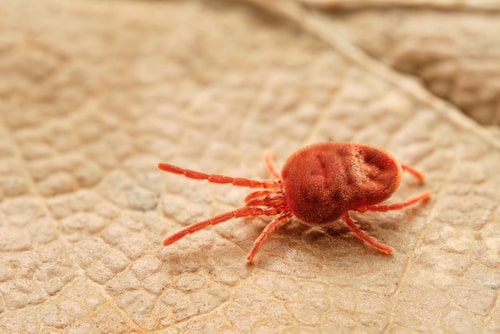
- The most common parasites we see in autumn include ticks, fleas, and harvest mites. These can all lead to skin problems or diseases affecting other parts of the body. It’s best to speak to a vet about what is best to use to prevent and treat these parasites.
- Some dogs and cats shed more hair or moult during certain times of the year. This is often completely normal. Abnormal signs to look out for include patches of hair thinning or loss, red skin, rashes, itchiness, or matted hair.
- Some allergies are more common in dogs and cats in the autumn. These include pollens, grasses, and moulds. Symptoms of allergies include scratching, licking, ear infections, skin infections, and lethargy.
What to do if your dog or cat eats something they shouldn’t
- Remove your pet or the dangerous substance from the area so there is no further contact.
- If there is any part of the substance on your pet’s fur or in their mouth, make sure to remove as much as possible.
- If it’s a plant and you don’t know the name of it, take photos of any parts that are left. If it’s a food that’s been eaten, take a photo of the packaging and ingredient list if possible.
- Make a note of how much of the dangerous substance your dog or cat has eaten.
- Take note of the time that your pet came into contact with the substance.
- Contact a vet immediately with all of the information you have, and they will advise what to do next. Do this even if your pet is not showing any symptoms.
Your vet may suggest contacting the animal poison line if the plant is not well known.
How to prevent your pet from coming in contact with poisons
- Check your garden for any dangerous plants. If found, remove or restrict access for your pet.
- Supervise your pet when outdoors at all times.
- Keep your pets away while doing the garden; keep bulbs out of reach at all times, and remove any cuttings immediately. Make sure your pet does not dig up any bulbs or seeds in the garden.
- Do not leave any human food lying around in the house, especially in areas that pets can get to. Make sure your rubbish bin is sturdy and not easy to get into.
- If your dog is prone to eating things they shouldn’t, consider using a basket muzzle when outdoors, especially in high risk areas.
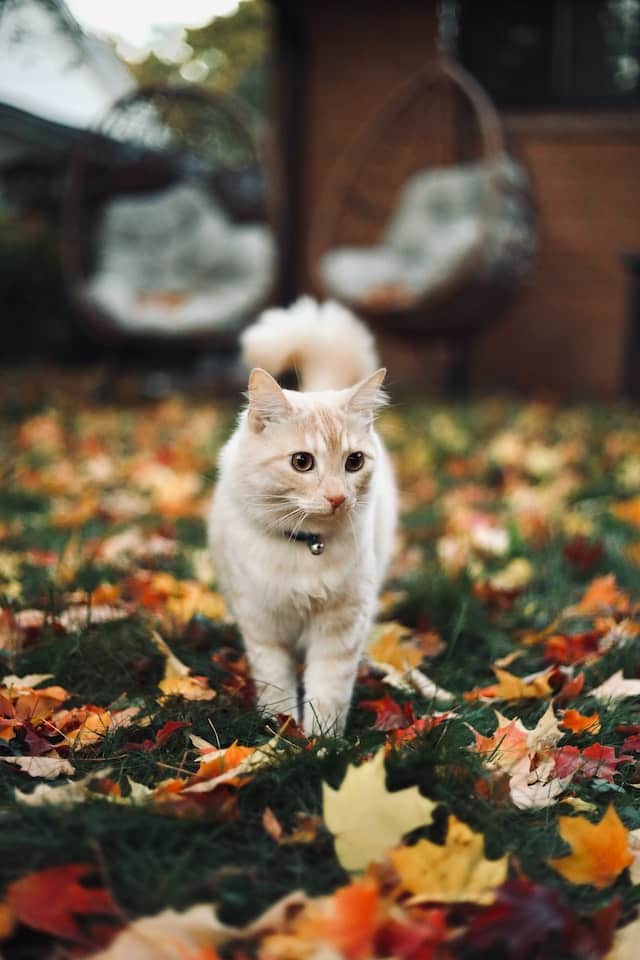
Our Joii vets are available 24 hours a day for advice. Download the app and speak to a professional straight away if you have any concerns about your cat or dog.
